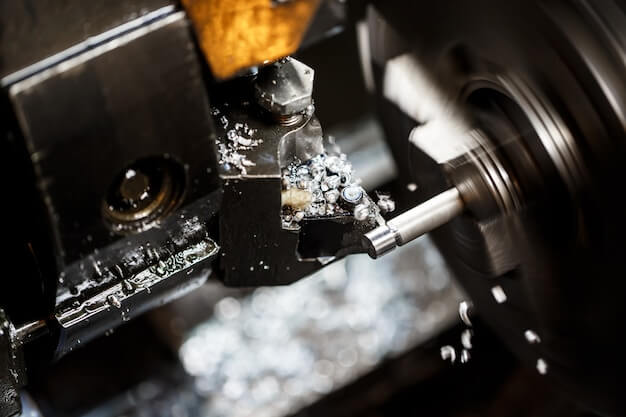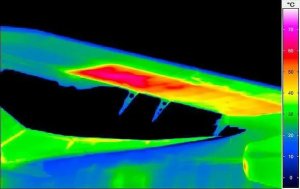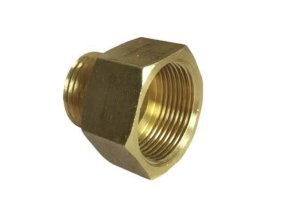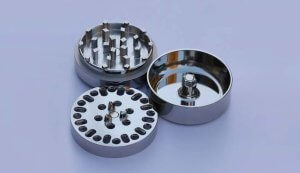The Future of CNC Machining in Sustainable Manufacturing
CNC (Computer Numerically Controlled) machining and sustainable manufacturing are two significant areas with increasing potential in the industrial sector. CNC machining is a process where pre-programmed computer software directs the movement of factory tools and machinery, enabling three-dimensional cutting tasks to be accomplished in a single set of prompts. Meanwhile, sustainable manufacturing refers to the creation of manufactured products through economically viable processes that minimize negative environmental impacts while preserving energy and natural resources. The integration of these two fields can bring about many benefits such as reduced waste generation, increased efficiency, and improved product quality.
- CNC Machining: Through precise control over manufacturing equipment, it ensures high-quality output while reducing human error and material waste.
- Sustainable Manufacturing: It emphasizes responsible resource usage, aiming to significantly reduce the carbon footprint of industries.
In the future, the convergence of CNC machined production methods with principles of sustainability can lead to the establishment of highly efficient, environmentally friendly manufacturing systems.
Background on CNC Machining
CNC machining, or Computer Numerical Control machining, is a manufacturing process that utilizes computerized controls to operate and manipulate machine and cutting tools to shape stock material—such as metal, plastic, wood, foam, composite, etc.—into custom parts and designs. Its applications cut across various industries, from automobile manufacturing to aerospace engineering and even the fashion industry. The precision, efficiency, and repetitive accuracy of CNC machining make it indispensable in today’s manufacturing landscape.
A notable example of a product created using CNC machining processes would be an automobile engine block. These critical components require complex geometrical cuts for different compartments- something traditional manual machines cannot efficiently accomplish. With CNC machining, these parts are accurately cut with unwavering precision at a fast rate without compromising quality, leading to increased productivity and cost-effective production.
The Current State of Sustainable Manufacturing
Sustainable manufacturing is presently gaining traction by becoming an essential aspect for companies striving to diminish their environmental footprint. This approach concentrates on creating systems and methods that are not only efficient but also minimal in waste generation.
Implementing sustainable practices helps decrease the adverse impacts on both, the environment as well as human health, thereby driving businesses towards operational excellence.
- A notable instance of sustainable manufacturing can be found in British Petroleum’s wind farms. The energy company has established several wind farms across 6 states in the U.S., all with the aim of harnessing renewable, clean energy in a bid to combat climate change. By maximizing the use of CNC machining, BP has managed to construct precision parts needed for turbines efficiently and sustainably.
In conclusion, striking a balance between productivity and sustainability through advancements like CNC machining (Computer Numerical Control machining) signifies how industry leaders today steer towards more responsible, environmentally-friendly manufacturing processes.
The Role of CNC Machining in Facilitating Sustainable Practices:
- Step 1: CNC machining plays a crucial role in facilitating sustainable manufacturing practices by enabling efficient material usage and waste reduction.
- Step 2: The use of CNC machining contributes to the development of eco-friendly manufacturing processes by minimizing energy consumption and emissions.
- Step 3: Leveraging the online CNC service to promote sustainable practices through precision machining and resource optimization.
- Step 4: CNC machining is instrumental in driving sustainable manufacturing by promoting the production of durable and recyclable components for various industries.
Future Projections for CNC Machining in Manufacturing
The sustainability quotient of Computer Numerical Control (CNC) machining is projected to further enhance with advances in technologies and emerging trends. One such trend shaping the future of CNC machining is the adoption of high-speed machining techniques which enable faster production, subsequently reducing energy consumption and carbon emissions, thereby increasing its sustainability.
Meanwhile, technological improvements like Artificial Intelligence (AI) are providing predictive analytics capabilities enabling efficient toolpath optimization resulting in reduced waste generation, thus boosting overall sustainability.
In conclusion, our current trajectory hints at an exceedingly promising future for sustainable CNC machining underpinned by tech advancements and changing industry trends.
Other Articles You Might Enjoy
- Innovative CNC Machining for Advanced Spacecraft Components
Introduction: CNC Machining and its role in Spacecraft Components Computer Numerical Control (CNC) machining has, over the years, proven to be one of the most integral pillars within manufacturing industries.…
- Nickel Alloys in CNC Machining: Inconel 718 vs. Monel K-500 for Aerospace and Marine Applications?
Introduction to CNC Machining and Nickel Alloys Computer Numeric Control (CNC) machining is a pivotal process in the manufacturing industry, using pre-programmed computer software to dictate the movement of factory…
- Ceramic Tooling in CNC Machining: Breaking the Myths About Durability and Performance?
CNC Machining and Ceramic Tooling: Busting the Myths Computer Numerical Control (CNC) machining is an advanced method of manufacturing where pre-programmed software controls the movement of factory machinery, giving intricate…









